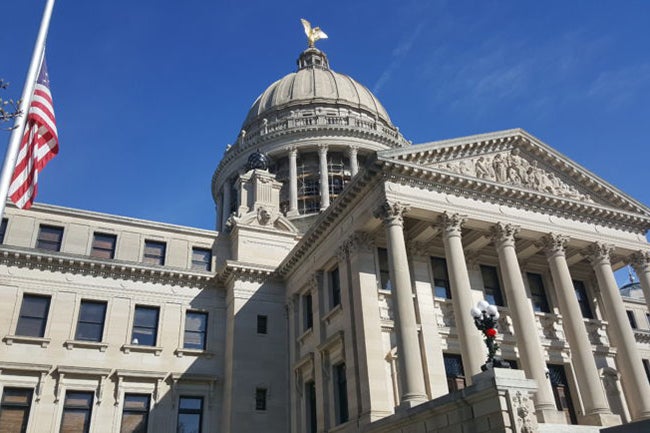Fight over how to fund public schools intensifies in Legislature
Published 12:00 pm Saturday, March 9, 2024

- Mississippi State Capitol. File photo
By
Mississippi Today
The divide between the Senate and the House over how to fund public education — specifically local school districts — intensified dramatically on Thursday, setting the stage for a potentially contentious remainder of the 2024 legislative session.
On Thursday, the Senate passed its public school funding plan with no senator voting no and two voting present. The Senate plan would update the long-standing Mississippi Adequate Education Program (MAEP) that features an objective formula to determine the amount of money schools need for their basic operation.
The House leadership, conversely, passed its plan on Wednesday. While it is still supported by a strong majority of the House, it lost support after its initial approval on Wednesday, when just 13 members voted against it. But on Thursday, during a vote on a procedural motion to send the bill to the Senate, 36 members voted against it.
Before the vote on the procedural motion, Rep. Robert Johnson, D-Natchez, the chamber’s minority leader, blasted the House Republican leadership in a fiery speech for providing members with what he said was incorrect information on the bill when it was debated Wednesday in the chamber. He said the Legislative Budget Office told him that the numbers used to determine the cost of the program and how much money each school district received were not developed by the staff of the Legislative Budget Committee as House leaders had told the chamber on Wednesday.
He said as far as he knew, the numbers in the House plan were “pie in the sky.”
“I don’t mind anybody having a good idea,” Johnson said. “I don’t mind anybody coming up with a new plan. But if I am going to rely on the information presented to me, ask me to vote on something and I ask a question, I don’t think it is right to misrepresent information to me.”
House Education Chair Rob Roberson, R-Starkville, the primary author of the House bill, called it a “miscommunication” and that the numbers that the Legislative Budget Office staff verified were from publicly available data from the Mississippi Department of Education.
Speaker Jason White, R-West, said during a news conference Thursday that he respected the Senate, but indicated that basing funding on an objective formula was a non-starter. He said the House plan placed an additional $240 million into public education and that it was more equitable for poor students than the plan passed by the Senate.
But Senate Education Chair Dennis DeBar, R-Leakesville, said on Thursday that the Senate plan, which will increase education funding by about $210 million, was based “on real numbers” compiled with the assistance of the Department of Education.
Plus, he said, “I think it is extremely important we have an objective formula that everyone (every school district) can run and know what they are going to receive,” adding that an objective formula “provides accountability for us.”
DeBar is hoping with the changes in the Senate plan that the Legislature would choose to fully fund the formula each year. The formula has been fully funded only twice since 2003. And past House leaders have tried to replace the MAEP because they said it cost too much money.
The House plan would create an advisory committee composed of education professionals to make a recommendation to the Legislature of how much money schools needed.
During debate in the Senate and the House on Thursday, there was specific mention of three advocacy groups working on the House rewrite plan: Mississippi First, Empower Mississippi and the Mississippi Center for Public Policy. Two of the groups, Empower and Mississippi Center for Public Policy, are vocal supporters of vouchers, while Mississippi First has been a charter school proponent. Some public education advocates oppose charter schools that are not held to the same laws and regulations as traditional public schools.
DeBar pointed out the three groups began working in January on a plan similar to the House proposal. House leaders said they have communicated with Mississippi First, but did not know the other groups were involved. Plus, Roberson added he was willing to work with everyone.





